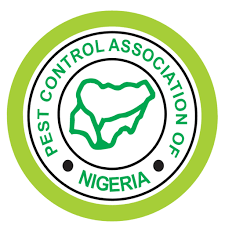The Environmental Health Council of Nigeria (EHCON) has called for clear separation of responsibilities among regulators and operators in the country’s pest control industry, while also urging stronger private sector involvement in environmental health services.
EHCON’s Registrar and Chief Executive Officer, Dr. Yakubu Baba, made the call during a Multi-Stakeholder Enlightenment and Engagement Forum in Lagos, organised jointly by EHCON and the Pest Control Association of Nigeria (PECAN) to mark the 2025 World Environment Day.
In a statement shared on Sunday, Baba said the event focused on the review of the National Environmental Health Guideline Regulations 2025, which is aimed at unifying pest and vector control operations under a coordinated national framework.
Dr. Baba, who addressed participants virtually, commended PECAN for its collaboration with other professionals in protecting public health and the environment. He described the revised regulation as “a child of necessity” intended to remove regulatory overlap and boost the credibility of environmental health services.
“One cannot be a regulator and a service delivery company at the same time,” he said, warning against conflicts of interest in the current system.
He emphasised that pest control is not just a hygiene issue but a national public health priority, especially in preventing diseases like Lassa fever and malaria. Baba called for standardised training and licensing of practitioners, inter-agency collaboration, and improved surveillance mechanisms to monitor pest infestations nationwide.
The environmental health profession only gained legal backing in 2002, following the enactment of the Environmental Health Officers (Registration, etc.) Act 11, which established EHCON as the regulatory body for the sector in Nigeria.
Speaking at the same event, PECAN National President, Mr. Olakunle Williams, described the 2025 regulations as “a transformative shift” in the pest control industry. He noted that the old model, which left most of the oversight to local governments, led to uncoordinated practices, poor compliance, and the proliferation of unlicensed operators.
“The new framework changes the structure. EHCON now becomes the central licensing and standards-setting body at the federal level. States will handle operational permits, while local governments focus on enforcement and public advocacy,” Williams said.
He added that the update represents a move from “regulatory fragmentation to a paradigm of coordinated collaboration.”
Also present was the Managing Director of the Lagos State Environmental Protection Agency (LASEPA), Dr. Babatunde Ajayi, who admitted that although Lagos has strong environmental laws, enforcement remains a challenge. He disclosed that the state government had already made fumigation compulsory in certain areas but noted that more needs to be done in terms of compliance.
“Our laws are strong, but enforcement needs collective effort. We started by closing down violators, but now we’re building relationships with communities for long-term impact,” Ajayi said.
He encouraged public participation in environmental monitoring and advocated the use of whistle-blowers to report environmental violations, particularly relating to pest control.
Several other stakeholders at the forum, including representatives from the private sector, civil society, and regulatory agencies, welcomed the new approach. They agreed that stronger collaboration, standardisation, and public awareness are critical to achieving a cleaner and healthier environment.
They also stressed that pest control should no longer be treated as a localised nuisance but as a national disease prevention strategy backed by legislation, skilled practitioners, and sustainable funding.
The review and implementation of the 2025 Environmental Health Regulations are expected to improve professional standards, attract more private investments into the sector, and promote better coordination between federal, state, and local authorities.
